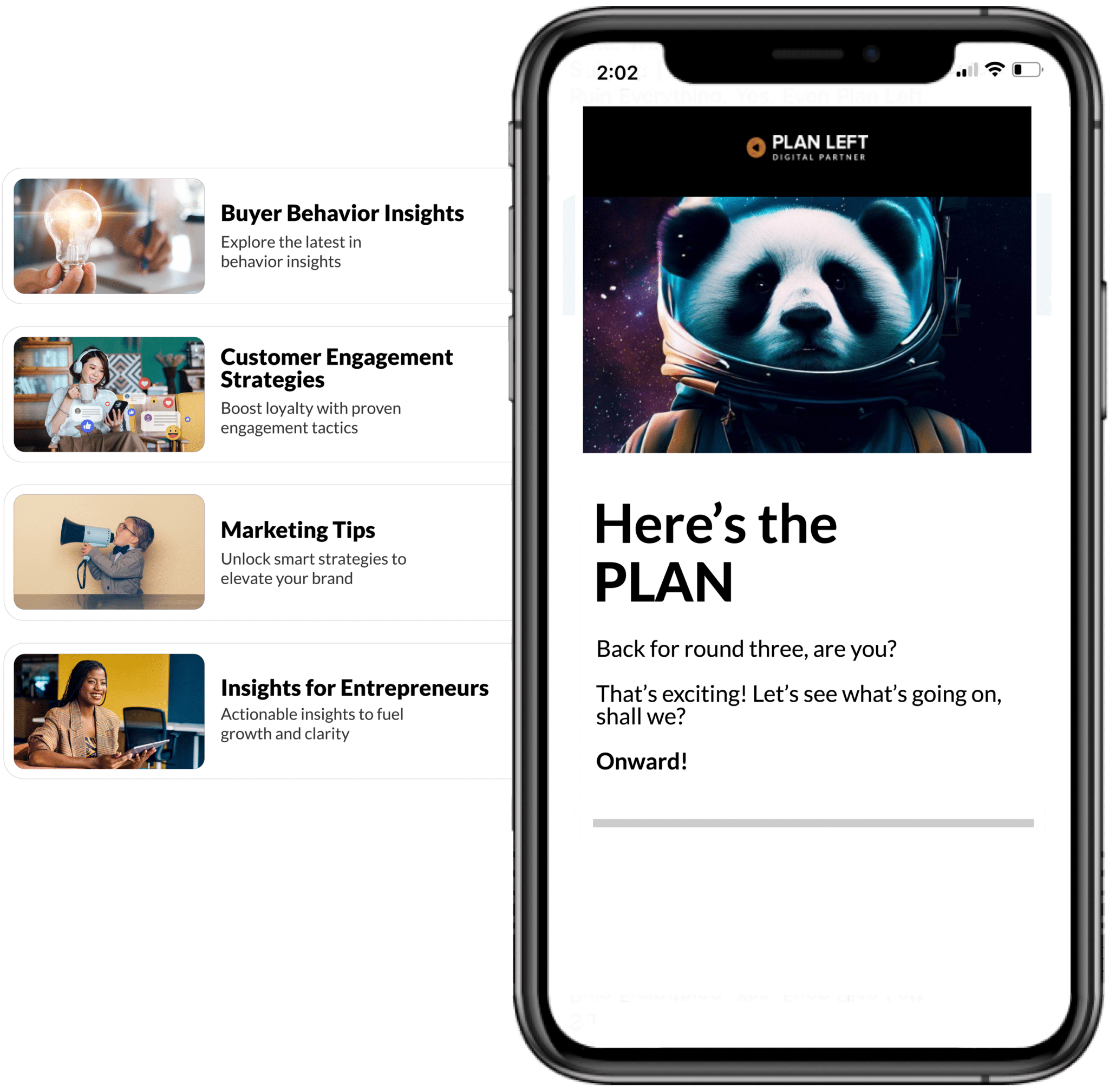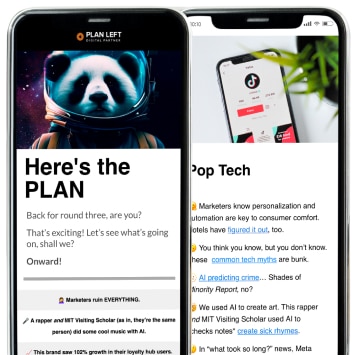
So, this is the story all about how…the band Jefferson Starship, credited with 70s and 80s hits “Sarah” and “Miracles,” also somehow was credited with creating SEO. In 1997, the band’s manager, frustrated by its website’s poor ranking performance, took matters into their own hands. They tinkered with keywords and internet strategies, and lo and behold! The website suddenly began to climb the ranks on search engines. Thus, the birth of SEO.
Or, that’s the less nerdy history of it anyway.
Jamming on SEO Day
In its garage band days, the internet was more of a massive directory and less of the mega informational referral service it has grown into. As a result, marketers started getting creative with client websites, discovering if they played the right tunes together, there was a website ranking hit in the making.
The truth is, we don’t know exactly when SEO started to climb the charts. What we do know is that the term SEO was first rocked out in 1997 by Multimedia Marketing Group and, more specifically, John Audette. The term SEO was first used in February of 1997 but didn’t start to grab traction until 1998.
Rocking the Digital World
We’ve established that SEO wasn’t exactly born out of a rock-n-roll jam session, but let’s not kid ourselves. It’s been rocking the digital world ever since. In the ‘90s, the internet was like a wild, wild west of the digital frontier—untamed, unorganized. Chaos, really. There were no rules or limits to what was allowed for a website to rank. This lawlessness led to innovative SEO practices and some one-hit-wonder maneuvers that became known as ‘black hat SEO.’
The Era of Black Hat SEO
In the late 90s and early 2000s black hat SEO practitioners were like rebellious rockstars, using unorthodox tactics to gain fifteen minutes of website fame. With the lack of regulations, these strategies included:
- Keyword Stuffing: Overloading web pages with excessive keywords to manipulate search engine rankings.
- Invisible Text: Hiding text by making it the same color as the background to deceive search engines.
- Link Spamming: Creating a multitude of low-quality, irrelevant backlinks to boost rankings.
While these approaches could temporarily increase a website’s rankings, they often played sour notes that generated low-quality and irrelevant content that users weren’t tuning in for.
Grooving to a New SEO Beat
Ultimately, a shift began in the early 2000s towards a more ethical and sustainable SEO practice. As the internet and search engines matured, the need for quality and relevance took center stage. Google took charge with the first of many updates in December of 2000 with the launch of the Google Toolbar, which started the Toolbar PageRank—or what SEO now refers to as SERPs.
It didn’t take long for Google to keep putting out the hits with updates for additional algorithm improvements like ‘the 1st Document Update’ (mysterious, I know) in September of 2002, Boston in February of 2003, and a string of additional single named updates until Panda in 2011, which is arguably the first of the most impactful changes to search engines.
SEO practitioners didn’t waste time and began to embrace the sound of SEO adjusting to the updates with new techniques:
- Content Tuning: Websites started tuning their content, harmonizing keywords.
- Backlink Optimization: Optimizing backlinks became a focal point for ranking.
- Quality and Relevance: Search engines started ranking sites not based on their existence but on their relevance and quality.
- Technical SEO: Optimizing the website’s technical aspects, such as load speed and mobile friendliness.
- Local SEO: Tailoring strategies to target local audiences and improve visibility in local search results.
The internet was transforming from a chaotic concert hall into a well-orchestrated symphony, where every site had a chance to be the lead singer, provided they hit the right SEO notes.
SEO Beat Goes On
SEO was the backstage pass to the top of the search engine results. In the beginning, there were no rules allowing keyword stuffing and playing with codes to play to the top of the charts. But Google saw the manipulations, and as the rock icon it was growing to be, started prioritizing quality content and relevant links, making the internet more harmonious.
To create an equal playground, Google began releasing core algorithm updates that would penalize websites using black hat ranking methods:
- Panda Update (2011): Focused on the quality of content, penalizing thin content and content farms while rewarding unique and compelling content.
- Penguin Update (2012): Targeted spammy and irrelevant links, penalizing websites that were over-optimized with unnatural links.
- Hummingbird Update (2013): Enhanced Google’s understanding of user intent and improved the interpretation of conversational search queries.
- Mobilegeddon Update (2015): Prioritized mobile-friendly websites in search results, pushing webmasters to optimize sites for mobile users.
- BERT Update (2019): Leveraged natural language processing to better understand the context of words in search queries.
As a result, SEO had to tune its approach and adapt as search engines got smarter.
SEO Marketing Solo
SEO Day isn’t just about nerding out on spreadsheets, algorithms, and metadata. It’s a day to tip our hats to the digital maestros, like the ‘Grandfather of SEO’ James Dooley, who saw the potential of search engine optimization and turned the internet into a symphony of information. We’re playing the chords of the past and composing melodies of the future. Righteous, am I right?
Looking ahead, SEO prepares to take the lead in the band of digital marketing. With new trends like AI and voice search, SEO strategies need to hit the right notes to keep the audience engaged. It’s all about understanding the crowd (user intent) and delivering a performance that leaves them calling for an encore.
Riding the SEO Wave
As algorithms get remixed, SEO pros ride the wave of change and keep their skills sharp. The Plan Left SEO band is no exception. As new search engine algorithms are released, and best practices change, Plan Left creates new tunes that keep our client websites at the top of the charts. Always creative, innovative, client-focused, and ready to jam with the ever-changing digital rhythm.
Plan Left isn’t locked into one genre, either. Our portfolio of hits includes:
- Strategic SEO: Crafting customized SEO strategies tailored to your business needs and goals.
- Keyword Research: Identifying the most relevant keywords to target for optimal search engine visibility.
- Content Optimization: Fine-tuning website content to align with the latest SEO guidelines and user expectations.
- Link Building: Building high-quality, authoritative backlinks to boost your website’s credibility.
- Technical SEO: Ensuring your website’s technical aspects are in top shape for a seamless user experience and better search engine rankings.
- Local SEO: Enhancing your online presence for local audiences to improve visibility in local search results.
- Monitoring and Reporting: Keeping a vigilant eye on your website’s performance and providing insightful reports for informed decision-making.
Join us at Plan Left in celebrating the rockstar journey of SEO on International SEO Day on September 27th. Let’s make some noise, ride the wave in the digital world together, and keep rocking in the optimized world.
Explore Latest Posts
From Feast-or-Famine to Predictable Revenue: Creating Consistency in Lead Generation The revenue roller coaster is exhausting. Some months your pipeline ... read more
February 25, 2026
Marketing Automation Tools That Actually Save Time (Not Create More Work) Your marketing to-do list keeps growing faster than you ... read more
February 18, 2026
The Hidden Costs of Managing Your Own Google Ads: What Most Business Owners Miss Google Ads seems straightforward enough: pick ... read more
February 11, 2026
Essential Strategies for Entrepreneurs
Get Actionable Business Insights & Marketing Tips
Our newsletter delivers real-world strategies from entrepreneurs who’ve been exactly where you are.
Sign up now for:
- Actionable growth strategies that work
- Insider tactics for attracting top talent
- Real-world case studies from successful founders
- Emerging tech trends that drive innovation
- Pragmatic marketing approaches for visionary leaders






